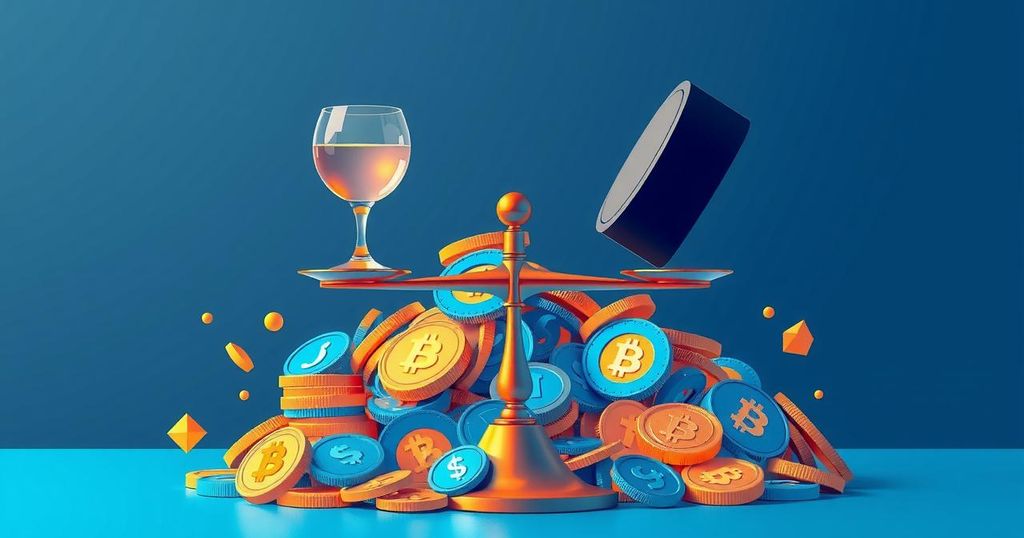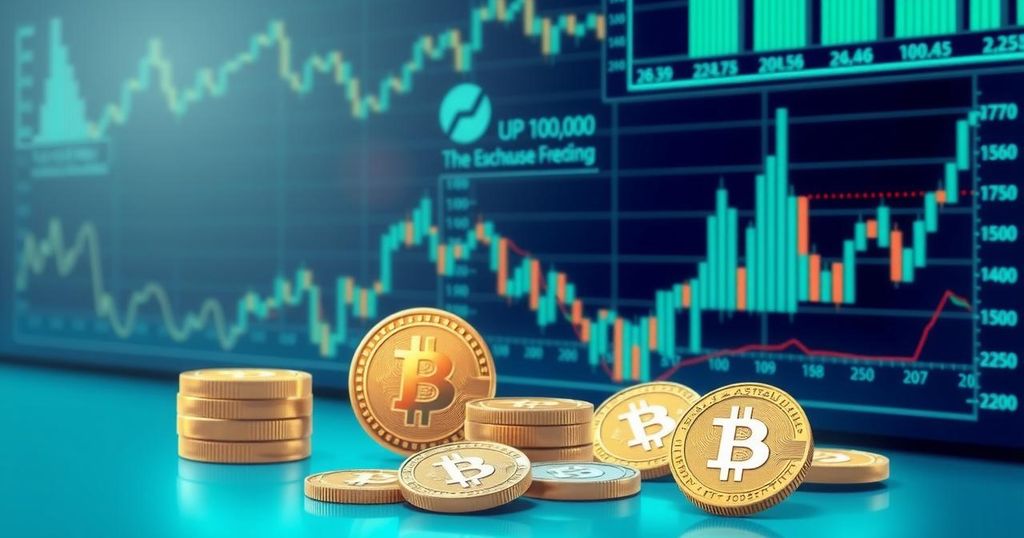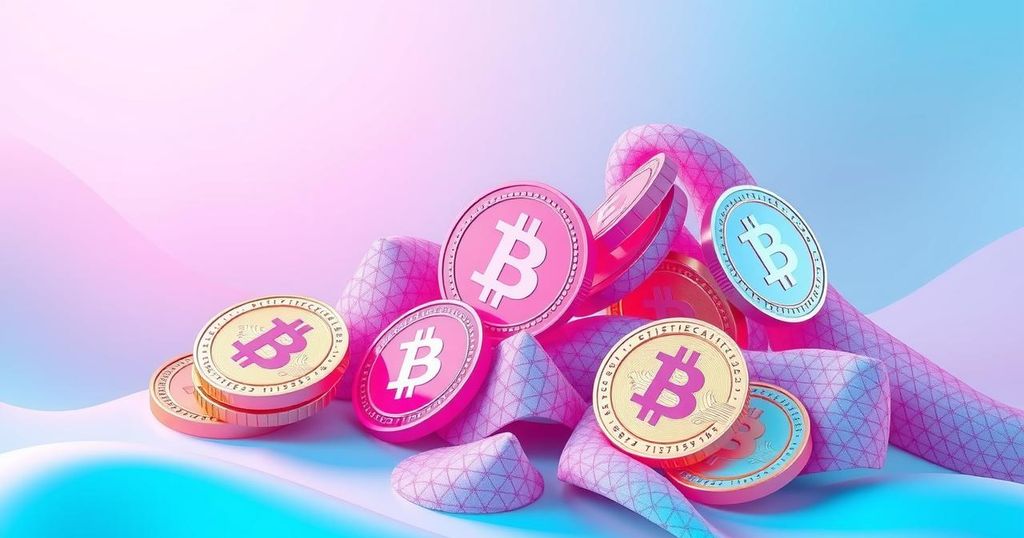Trump’s Surprising Crypto Ventures Raise Eyebrows and Questions
Donald Trump’s entry into cryptocurrency has reportedly earned his family around $3 billion within six months, complicating his relationship with regulatory frameworks as his administration loosens oversight of the industry. His ventures include meme coins like $TRUMP and $MELANIA, alongside significant stakes in World Liberty Financial and the controversial USD1 stablecoin. These developments have sparked concerns over potential conflicts of interest and lack of transparency in dealing with international funds, prompting calls for investigations into these dealings and their implications for national security.
Recent reports suggest that Donald Trump’s pivot into the cryptocurrency market has made his family almost $3 billion in just six months, now comprising about 40% of his overall wealth. Interestingly, while his personal wealth appears to be soaring, his administration has simultaneously relaxed regulations surrounding the crypto industry. Funding cuts to the Treasury, the elimination of proposed fraud protections, and the pardoning of former crypto offenders have raised eyebrows. It’s quite the juxtaposition, to say the least.
A significant portion of the enthusiasm—and the cash—around Trump’s crypto ventures can be traced back to two meme coins: $TRUMP and $MELANIA. These coins, driven mainly by internet branding and humour rather than any legitimate use, have generated over $140 million in trading volume within only four months. Therefore, you have to wonder: is this really about innovation or just leveraging name-value for profit?
Additionally, Trump holds a substantial share in World Liberty Financial, a family-backed crypto exchange. His business entity owns 60% of the exchange, drawing 75% of all coin sales revenue. Eric Trump and Donald Trump Jr. are not just passive investors; they are actively managing the operations. Current estimates suggest the Trump family could reel in around $400 million in fees from this venture. Quite the tidy sum, if you ask me.
Yet, at the core of this crypto operation lies a potentially more powerful asset: USD1. This so-called stablecoin aims to maintain a fixed value by backing itself with assets like US dollars and Treasury bonds. Its market cap exceeds $1 billion, but the implications of its existence could be worrisome. According to Trump’s financial disclosures, the family holds a stake of at least 28% in USD1’s managing entity, with further interests hidden in web of shell companies linked to the Trump Organisation.
The operation of USD1 is overseen by Donald Trump Jr. and Zach Witkoff, who is the co-founder of World Liberty Financial. The nature of their business was recently spotlighted during their trip to Abu Dhabi, where they struck a deal involving a massive $2 billion investment into Binance, a crypto exchange known for its regulatory missteps and legal troubles. It’s astonishing to consider that a family linked to the presidency is orchestrating deals that advantage platforms notorious for flouting basic laws—seems questionable at best.
In the midst of this, there are serious red flags about the ownership and auditing of USD1’s backing assets. The question of who really controls over $2 billion held in a single anonymous wallet remains unanswered, with little apparent oversight from regulatory agencies like the SEC or Treasury. This raises a pressing issue: could entities from sanctioned countries use USD1 to quietly inject millions into the U.S. economy without oversight? The thought alone is disconcerting.
Moreover, just recently, Witkoff announced plans for USD1 to integrate with Tron, a platform backed by Hong Kong crypto mogul Justin Sun. He is a major investor in Trump’s World Liberty venture with an investment rumoured to be around $75 million. It all sounds terribly tangled.
When probed about this on NBC, Trump responded, “I’m not profiting from anything,” though he did admit that his success in any venture might come with some perks. The response hasn’t satisfied many, especially as Democrats are now urging for an investigation into the transaction in Abu Dhabi, flagging it as a significant conflict of interest.
Concerns raised by Senators Jeff Merkley and Elizabeth Warren highlight the potential dangers this poses to national security and constitutional integrity. The optics of Trump’s family connecting with controversial figures in the crypto space feels nothing short of alarming. Imagine the outcry if it had been Biden’s family embroiled in similar dealings—it’s a thought exercise we might not want to engage with too deeply.
The emergence of this parallel financial system looks to raise fundamental questions about accountability and regulatory responsibility, as Trump’s operations appear to function without the integrity of public trust. Americans are potentially being misled that this crypto movement represents freedom against Wall Street, while in reality, it might just serve to enrich a private elite, trading accountability for luxury.
As it stands, the current scenario raises serious alarms. If unfiltered crypto initiatives from future administrations become acceptable, what will happen to existing anti-corruption measures? This is a precarious path, teetering dangerously close to something that feels like monetary capture. We must ponder what’s being disrupted here: accountability, trust, and the notion that those elected to serve shouldn’t exploit their positions for personal gain.




Post Comment